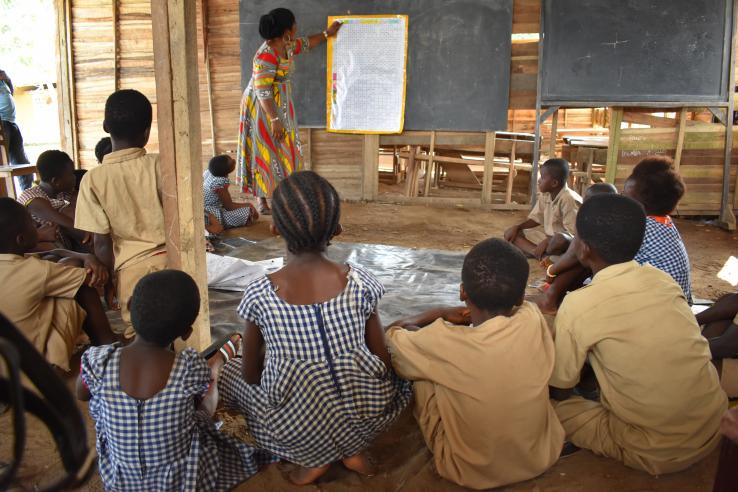Focusing on the Foundations: Education in the time of COVID-19

A joint statement by the Douglas B. Marshall, Jr. Foundation, Innovations for Poverty Action, J-PAL, Pratham, Teaching at the Right Level Africa, and Young 1ove.
The COVID-19 pandemic has left an unprecedented 1 billion children out of school for substantial periods of time. Even before the pandemic, there was a learning crisis. In Kenya, Tanzania, and Uganda, three-quarters of grade 3 students cannot read a basic sentence such as “The name of the dog is Puppy.” In rural India, half of students in grade 3 cannot solve a two-digit subtraction problem such as 46 minus 17 (ASER 2018; World Development Report 2018). Based on past research from other crises, the pandemic is likely to exacerbate the global learning crisis (Andrabi, Daniels, and Das 2020). This has significant implications for equity, with children from low-resource families most at risk of being left further behind.
As schools reopen, governments are rightly focused on ensuring school re-entry for as many as possible. Now is a unique opportunity for governments, NGOs, and multilaterals to go a step beyond ensuring school re-entry to achieving learning for all—including the most disadvantaged. Previous research shows a central barrier to learning is that children come into classrooms at very different levels, many unable to keep up with curriculum. As the COVID-19 crisis is expected to widen the gap between children with access to learning resources out of school and those without, teachers are likely to return to classes with an even wider range of kids’ abilities in their classrooms, making their jobs even more difficult, and risking even more children left behind.
Drawing on decades of rigorous evidence and practical experience across dozens of countries, we recommend two actions in particular to support foundational learning for all, as we head back to primary schools around the world:
- Conduct simple, fast, cheap, and low-stakes learning assessments as students re-enter school, and use the results to meet children where they are and start teaching from there. For example: one-on-one simple oral reading assessments enable teachers to understand what their students can do or cannot do – and to tailor instruction to their level. These assessments are tools for understanding children and planning instructional action. They should be conducted periodically to track progress. One-on-one oral assessments are particularly effective to assess reading and numeracy and build connection between teacher and student. Fast, simple, and cheap assessments include ASER, ICAN, and Uwezo.
- Focus on foundational skills. Now is the time to ensure that all students master foundational reading and numeracy skills. Armed with an understanding of the learning level of each child, teachers and schools can set clear and simple basic numeracy and literacy learning goals for individual children and focus on teaching them the next set of skills. Foundational skills should be prioritized and extra time allotted for them in the school calendar.
Overall, this is a time that calls for connecting assessment with action and focusing on the foundations to ensure equitable learning for all. Governments can send a bold signal: allow teachers and educators to do what they can to meet students where they are. As schools reopen, schools and teachers should set aside substantive time every day where they focus not on the syllabus and instead on helping each child learn the next skill. This can be done in many different ways—in class, as camps after school, by grouping children by skills rather than age, or even with technology. These approaches can support teachers as they welcome back children with different learning levels. We have an unprecedented opportunity to empower front-line teachers to implement solutions and to build the foundation for a lifetime of learning for a generation of students.
Now is also an opportunity to deepen engagements with parents and communities. Parents have been heavily involved in their children’s education over the last few months, and we should harness this momentum. There are many ways to share the information about the child’s learning levels with parents and empower parents with simple activities they can do with their children at home (through text messages and phone calls). Call them periodically, invite them to school to celebrate children’s progress, and encourage them to continue supporting their child at home. This moment presents a turning point where everyone can and should be involved in a child’s education.
Add your name here if you are interested in learning more or are already committed to enact these ideas. In the coming weeks, we will convene a group interested in learning how they can help lead this change. We are eager to support in any way we can. There was a learning crisis before COVID-19, which the pandemic has only exacerbated, especially for the most disadvantaged. Let’s not go back to business as usual—let’s do better. Now is a moment to ensure that every child returns to school and acquires the foundational skills needed to realize their full potential.